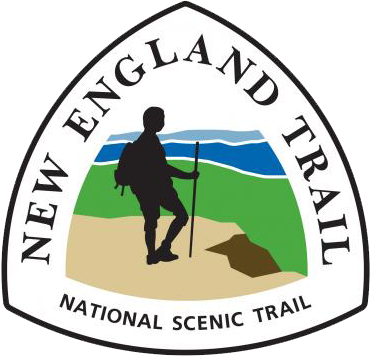Landowners
The New England Trail (NET) would not exist without the generosity of private landowners. Thanks to these community-minded citizens, many miles of the NET are open for hiking on private land. While some landowners have entered into more formal agreements to protect the trail, many trail segments on private land remain open to the public through handshake or license agreements. Though tremendously helpful, these informal agreements are sometimes lost when properties are sold and land uses change.
Fortunately, increasing numbers of landowners are permanently protecting the NET on their properties by donating or selling trail corridor lands to a land protection partner. Thanks to these landowners, the NET is closer to remaining open to public walking forever.
Several options exist for ensuring long-term enjoyment of the trail in partnership with the CFPA or AMC. Agreements can vary in length, type and cost. Some options may provide a landowner with tax benefits.
If you are interested in exploring options for protecting the NET across your property, several resources and organizations are available to help you.
Please contact us if you have any questions or concerns, and we will be glad to help you find the information you need.
Protection for Landowners
In addition to agreements that protect the NET, landowners themselves are protected under state statutes in Connecticut and Massachusetts.
CT General Statutes
Sec. 23-72a. New England National Scenic Trail. Preservation of trail as state policy. Acquisition of land. Transfer of land from other agencies. Use of trail and land. Maintenance agreements. Liability of grantor of right-of-way. Use of funds.
(f) No person who has granted a right-of-way for said trail across his or her land, or his or her successor in title, shall be liable to any user of the trail for injuries suffered on said right-of-way unless the injuries are caused by his or her wilful or wanton misconduct as described in sections 52-557f to 52-557i, inclusive.
MA General Laws Section
General Law – Part I, Title II, Chapter 21, Section 17C
Section 17C. Public use of land for recreational, conservation, scientific educational and other purposes; landowner’s liability limited; exception
(a) Any person having an interest in land including the structures, buildings, and equipment attached to the land, including without limitation, railroad and utility corridors, easements and rights of way, wetlands, rivers, streams, ponds, lakes, and other bodies of water, who lawfully permits the public to use such land for recreational, conservation, scientific, educational, environmental, ecological, research, religious, or charitable purposes without imposing a charge or fee therefor, or who leases such land for said purposes to the commonwealth or any political subdivision thereof or to any nonprofit corporation, trust or association, shall not be liable for personal injuries or property damage sustained by such members of the public, including without limitation a minor, while on said land in the absence of wilful, wanton, or reckless conduct by such person. Such permission shall not confer upon any member of the public using said land, including without limitation a minor, the status of an invitee or licensee to whom any duty would be owed by said person.
(b) The liability of any person who imposes a charge or fee for the use of his land by the public for the purposes described in subsection (a) shall not be limited by any provision of this section. For the purposes of this section, ”person” shall include the person having any interest in the land, his agent, manager or licensee and shall include, without limitation, any governmental body, agency or instrumentality, a nonprofit corporation, trust, association, corporation, company or other business organization and any director, officer, trustee, member, employee, authorized volunteer or agent thereof. For the purposes of this section, ”structures, buildings and equipment” shall include any structure, building or equipment used by an electric company, transmission company, distribution company, gas company or railroad in the operation of its business. A contribution or other voluntary payment not required to be made to use such land shall not be considered a charge or fee within the meaning of this section.
